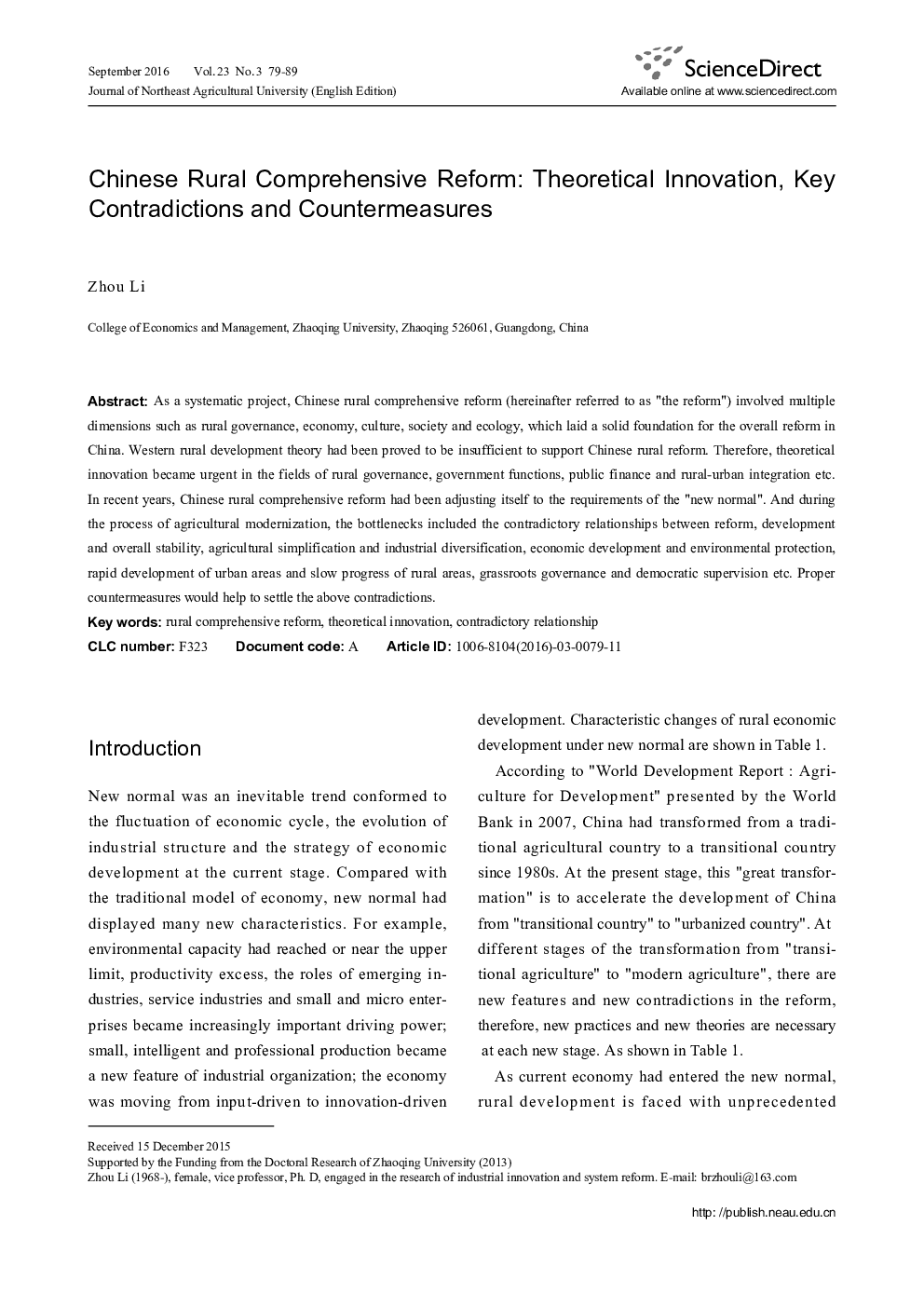| Article ID | Journal | Published Year | Pages | File Type |
|---|---|---|---|---|
| 8876262 | Journal of Northeast Agricultural University (English Edition) | 2016 | 11 Pages |
Abstract
As a systematic project, Chinese rural comprehensive reform (hereinafter referred to as “the reform”) involved multiple dimensions such as rural governance, economy, culture, society and ecology, which laid a solid foundation for the overall reform in China. Western rural development theory had been proved to be insufficient to support Chinese rural reform. Therefore, theoretical innovation became urgent in the fields of rural governance, government functions, public finance and rural-urban integration etc. In recent years, Chinese rural comprehensive reform had been adjusting itself to the requirements of the “new normal”. And during the process of agricultural modernization, the bottlenecks included the contradictory relationships between reform, development and overall stability, agricultural simplification and industrial diversification, economic development and environmental protection, rapid development of urban areas and slow progress of rural areas, grassroots governance and democratic supervision etc. Proper countermeasures would help to settle the above contradictions.
Related Topics
Life Sciences
Agricultural and Biological Sciences
Agricultural and Biological Sciences (General)
Authors
Zhou Li,
